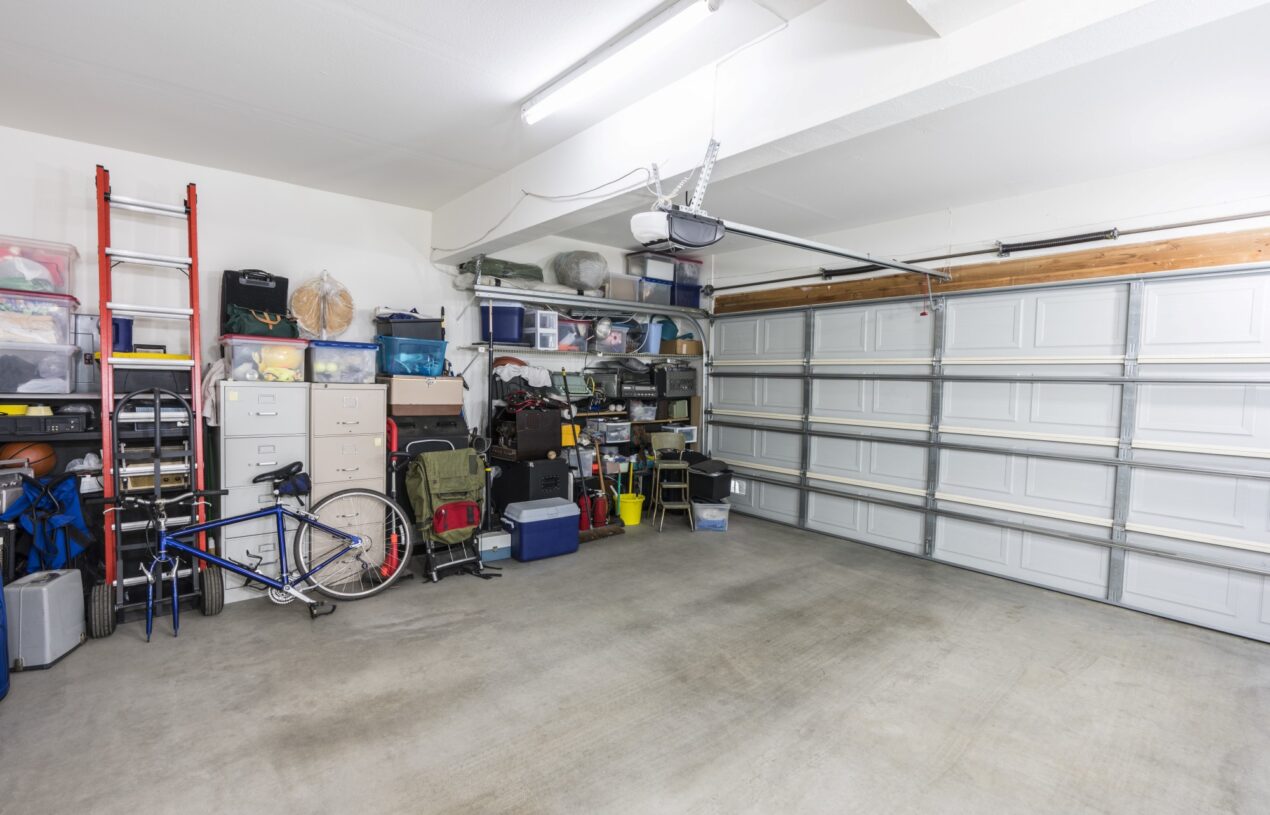Did you know that in 2020, 67% of new home constructions featured a two-car garage? That’s the highest percentage ever recorded yet. By contrast, the share of new houses without a garage hasn’t changed, remaining at 7% since 2017.
Those figures show that garages, especially spacious ones, are vital to homeowners. After all, these structures are no longer just for storing cars; they now double as a workshop or as an office.
Sounds familiar?
If so, then it’s high time you learn how polyurea vs. epoxy garage floor coating stacks up against each other. After all, these two are among the most common protective coats used for garage floors.
Lucky you, though, as you came to the right place. This guide compares epoxy and polyurea coating and their pros and cons, so keep reading.
What Is Polyurea Coating?
Polyurea is an elastomer created by mixing synthetic resin and isocyanate-reactive materials. The latter, in turn, are substances that induce chemical reactions in polymers. For example, they can help hasten the curing process, making production more efficient.
For the same reason, polyurea coatings have blazing-quick setting times. So fast, indeed, that some formulations have nearly instantaneous cure times. Others can take a bit longer, ranging from two to several minutes, which is still fast.
Despite its super-fast curing times, polyurea is very durable. For example, it boasts excellent abrasion, chemical, and scratch resistance. It also resists moisture and discoloration and even has flame-retarding properties.
With those benefits, it’s no wonder experts valued the global polyurea market at $749.3 million in 2020. Moreover, experts project its value to keep growing, reaching a whopping $975.9 million by 2027.
What About Epoxy Coating?
Epoxy floor coating is a compound made mainly of epoxy resin and a polyamine catalyst. The latter is a hardening agent that creates a chemical reaction when mixed with resin.
That chemical reaction involves the cross-linking of the materials’ elements. It results in the formation of a durable, rigid plastic coat once cured completely.
In addition, epoxy coatings offer impact and chemical resistance. All those attributes make them ideal protective garage floor materials.
Polyurea vs. Epoxy: Which Should You Choose Then?
Polyurea wins in terms of cure times, durability, and elemental resistance. However, epoxy still has some advantages, including cost and ease of application. Thus, consider the following factors when choosing between the two.
Initial Cost
According to the folks at Garage Force, you may save a little with epoxy’s upfront cost. That’s because this coating material is less expensive than polyurea.
So if you’re on a tight budget, epoxy may be a viable option. However, if you can extend your budget, it’s still best to go with polyurea, as it can last longer. As a result, it can save you money in the long run since it’s less prone to costly damages.
Application Process
Both epoxy and polyurea coatings require adequately-prepared surfaces before their application. This part involves cleaning, degreasing, and repairing surface flaws.
Many epoxy floor coat manufacturers sell their products in two-part kits. You then have to mix the two according to their instructions. After that, you can apply the mixture to your surface-prepared garage floor.
The application method for epoxy, in turn, is very similar to rolling paint on a wall, except you work on the ground.
By contrast, most polyurea coats require spray application using specialized spray equipment. In addition, the materials often have to undergo pre-heating. Only after they’ve reached the appropriate temperature can you start spraying them.
That makes polyurea application more labor-intensive than epoxy. However, remember that this material sets way faster than epoxy.
So, when you go for polyurea, you can expect your garage floor to be ready for use within the same day. On the other hand, you may have to wait for several days for epoxy to set completely.
Health and Safety Aspects
Polyurea’s moisture resistance is superior to epoxy coatings. That’s of utmost importance because moisture can degrade concrete, causing it to crumble. That can cause the floor to develop uneven areas, creating slip and trip risks and fall hazards.
Furthermore, unwanted moisture on or in concrete slabs can promote mold growth. The thing is, molds aren’t only ugly and foul-smelling; they can also cause health effects. They’re particularly risky to the 10% of Americans with mold allergies.
Epoxy coatings can also be slippery when wet, except if mixed with anti-skid compounds. In contrast, polyurea coatings often use vinyl chips, resulting in a textured surface. That then boosts traction, helping make the floor more slip-resistant.
Overall Longevity
Because polyurea has properties superior to epoxy, you can expect it to last longer. Indeed, you don’t have to recoat it every few years, unlike epoxy.
Moreover, polyurea coats are easier to maintain than epoxy since they’re not porous. So when you spill something on the floor, you don’t have to worry about it absorbing liquids or stains. You only have to wipe the spills; there’s no need to use chemicals like degreasers.
Polyurea also has outstanding ultraviolet (UV) radiation resistance. Conversely, UV damage is typical in epoxy coatings, causing them to discolor.
So if you tend to leave your garage open for prolonged periods, it may be best to go with polyurea. Otherwise, you may end with yellowed epoxy-coated floors within a few years.
Polyurea: The Clear Winner
As you can see, in the great polyurea vs. epoxy debate, the former is undoubtedly the winner. After all, it’s superior to epoxy in almost everything, from abrasion to UV resistance.
Polyurea does cost more upfront. However, considering its overall longevity, it’s much more cost-effective in the long run. All that should prompt you to choose a polyurea garage floor coating over one made of epoxy.
Did you like this article? We have loads of other informative guides to share, so feel free to stick around and read as many of them as you want!

